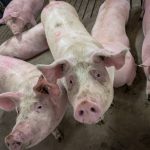Monsanto, the world’s largest seed company, said on Jan. 6 that a lineup of new biotech seed products has the company well positioned for future growth. St. Louis-based Monsanto said it has 19 projects advancing through its research and development pipeline, including nine added in the last two years. Notable advancements are being made in





